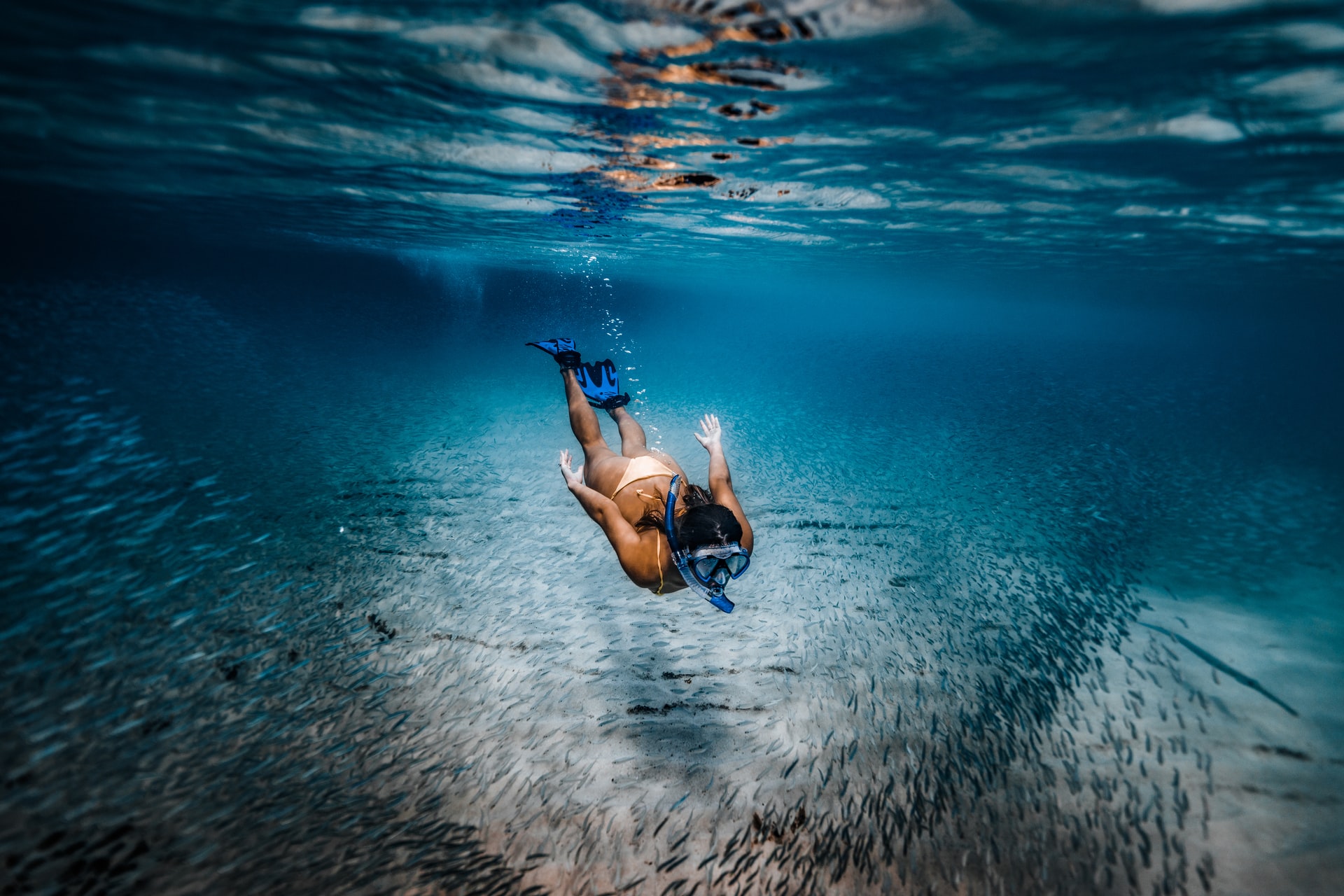Snorkeling can give you a simple, peaceful, and relaxing look into the underwater world.
But do you have concerns and are finding the thought of jumping in a bit scary?
Maybe you’re worried about using the equipment, or is it the open ocean and its inhabitants that are making you feel uneasy?
Or perhaps you’ve had a bad experience before but are not ready to give up just yet.
Whatever you’re thinking, we’re hopefully going to show you that snorkeling doesn’t need to be scary.
With the right approach, you’ll soon be enjoying the aquatic life and scenery like a snorkel pro.
- What Is Snorkeling Like?
- Can Snorkeling Be Scary?
- Can I Snorkel if I’m Scared of the Open Ocean?
- Should I Be Scared of Dangerous Sea Life When Snorkeling?
- Are Some People More Likely to Find Snorkeling Scary?
- How Can I Tell Whether I Will Find Snorkeling Scary?
- How Do I Get Over My Fear of Snorkeling?
- 8 Tips How to Enjoy Snorkeling Without Fear
- Conclusion
- You Might Also Like…
Disclosure: this post contains affiliate links (clearly marked with ), which means we may earn a commission if you buy something through them, at no additional cost to you.
What Is Snorkeling Like?
Snorkeling is swimming along the surface using a mask to see underwater and a snorkel tube to breathe through.
Fins (or flippers) are on your feet and are used to help you move along efficiently, while your hands are used to pointing out interesting things or for underwater communication via signals.
Snorkeling is often the favorite way for vacationers to witness the wonders of the undersea world, and once you’ve got the hang of it, it can be a healthy, mindful workout.
Less equipment is required than scuba diving, and snorkeling is often promoted as the more straightforward and cheaper option, so is how many people get their first look under the sea.
Some people think that snorkeling is an easy activity.
However, in the beginning, it’s common to find it a bit challenging.
With practice and experience, snorkeling is a relaxing way to explore the underwater world with few restrictions and is the perfect activity for when you’re tired of the beach sun loungers or need a cooling water adventure.
Can Snorkeling Be Scary?
There are many ways that snorkeling can be scary, especially the first time you do it.
Sadly, it’s pretty common for vacation excursion companies to exaggerate how easy snorkeling is to get beginners to sign up for their trips.
This means that for many, the first – and often last – snorkel experience is to be “thrown” off a boat with a large group, in less than ideal deep-sea conditions, and expected to get on with it in cheap equipment that doesn’t fit properly.
No wonder they don’t enjoy it!
Snorkeling can be a fantastic and genuinely easy activity.
However, it can be uncomfortable and scary without starting on the right foot.
Typical aspects that beginners often find scary include:
- Deepwater
- Water leaking into the mask
- Not being able to breathe through the snorkel
- Being a beginner
- Waves
- Currents
- Fear of fish
- Getting lost
- Drowning
- Sharks
- Exhaustion
- Worrying about letting a partner or friend down
So if you have had one or more of these on your mind, don’t think you’re alone or that they will stop you from enjoying snorkeling permanently.
Can I Snorkel if I’m Scared of the Open Ocean?
If the open ocean fills you with dread, then there are definitely things you can do that will still allow you to have fun snorkeling.
You don’t have to jump off a boat and snorkel in deep water to enjoy the hobby.
There are still exciting things to see in lagoons or next to reefs where the water can be calm, protected, and shallow enough to stand up in.
By starting in shallow water, you can build up your confidence and gain experience with the mask and snorkel.
Ideally, enter the water from a beach where you can walk in to get to a depth that you’re happy with to begin.
You can even kneel on the bottom in waist-deep water and experiment with your face in the water to get used to the feeling.
With a bit of practice, you can slowly progress as you feel comfortable and move on to slightly deeper water.
Never feel pressured to go into a depth or an environment that you’re not comfortable with.
Stay close to the exit point, wear a life jacket or inflated snorkel vest, and always go with an understanding buddy.
Should I Be Scared of Dangerous Sea Life When Snorkeling?
It’s pretty common for beginners to think about the dangers from sea life when they first try snorkeling.
However, remember that it’s utterly true that sea life has far more to worry about from us.
Sharks
Fear of the most obvious sea animals, sharks, is understandable given their picture in the media or Hollywood movies.
Still, the truth is that you have realistically nothing to worry about.
In vacation locations worldwide, snorkeling is only allowed where it is considered safe.
If it’s a concern for you, take the time to check local information and only snorkel in recommended areas with a lifeguard on duty.
It’s broadly accurate to say that sharks don’t usually come in close to the shore or into areas where there is a lot of activity.
Even in deeper water, remember that shark incidents with snorkelers are incredibly rare.
You can do your part to help by never doing anything likely to attract sharks like fishing, feeding fish, or dumping garbage into the water.
Stay close to the shore with a buddy, don’t snorkel at dusk or dawn, don’t wear jewelry, and avoid excessive splashing.
Fish
For many of us, seeing the fish is a significant appeal of snorkeling, but there are some that want to snorkel but are also afraid of fish.
We need to remember that fish are there in their natural habitat that we’re visiting.
Fish aren’t remotely interested in you as a snorkeler and will most likely leave you alone and just get on with going about their business.
Remember that we should never feed the fish as this can alter their behavior and cause them to pay unwelcome attention to snorkelers.
Practice your snorkeling in shallow water, where there will likely be fewer fish.
Spend time observing them, and you’ll find that you have nothing to worry about.
You might even start to enjoy watching them.
Snorkeling Marine Life Injuries
It is possible to suffer an injury from marine life when snorkeling, but the action of the snorkeler themselves almost always causes this.
Ensure that you keep a safe distance from rocks and corals to prevent yourself from being stung or cut accidentally, and importantly protect the fragile life.
Never stand on the reef itself, as not only can you injure yourself, but you’ll cause immeasurable damage to the coral.
Always enter and exit the water via safe pathways, and be especially cautious in an area where there are stinging, bottom-dwelling animals like sea urchins.
Because of the risk of standing on something unexpectedly, it’s always best to wear booties if you’re entering the water walking on the bottom.
If you’re in an area known for stinging animals like jellyfish, you can get thin bodysuits that not only stop you from getting stung but will also protect you from sunburn.
Generally speaking, be sensible, and you don’t have any reason to worry about being harmed by sea life.
Are Some People More Likely to Find Snorkeling Scary?
People who are more likely to find snorkeling scary will probably fall into one or both categories: never having tried it before or being a non or weak swimmer.
Being nervous if you’ve not tried snorkeling before is entirely normal, and we have 12 tips for beginners that you might find helpful.
You’ll also see that non-swimmers can have a go at snorkeling too.
Just make sure that you follow our advice to take it slowly, in shallow water at first, and build up your skills and confidence.
Both beginners and non-swimmers should always wear a life jacket or inflated snorkel vest, and all snorkelers, irrespective of experience, should stick with a buddy.
If you fear water, perhaps from a previous bad experience, you’d do well if you take professional snorkel lessons.
Having an instructor take you slowly through the steps at your speed can help you overcome your fears and get you comfortable.
How Can I Tell Whether I Will Find Snorkeling Scary?
If you’re already asking this question, it’s probably safe to say that you already have some fear.
If you’re just a little bit nervous, then our advice would be to start slowly, from a calm beach where you can walk in and have a go without pressure.
How Do I Get Over My Fear of Snorkeling?
The best way to overcome your fear is to break it down and work out what is causing you to worry about snorkeling.
Then, if you want to, you can address this slowly and find out if your fear is real or not and what you can do about it.
We’re going to give you some tips on dealing with some common fears that hopefully will be helpful.
8 Tips How to Enjoy Snorkeling Without Fear
Earlier, we mentioned some of the things that people commonly find scary when they think about snorkeling or try it for the first time.
We’ve already tried to address some of the fears caused by sea life, so let’s look at the remaining points one by one and see how these worries can be avoided.
1. Deep Water
If deep water makes you feel nervous, then you shouldn’t make your first snorkel experience from a boat.
Boats are wonderful for taking you places inaccessible from the shore and can provide some of the very best snorkeling.
However, usually these locations will be in deep water, and the journey to get to them might be bumpy and make you feel bad before you’re even started.
To build your confidence, start in water that you can stand up in and get experience there.
With your buddy, slowly try deeper water, and if you don’t like it, there’s still plenty to see in the shallows.
2. Problems with Snorkel Equipment
It can take some time to get comfortable wearing a mask and breathing through a snorkel.
Often rental equipment provided by snorkel excursion companies is the cheapest available and can be worn from use.
It’s best to have your own mask, snorkel, and fins so that you can make sure that they fit correctly.
Poorly fitting masks can leak badly, making the whole experience unpleasant, so make sure you try various masks to find one that fits your face.
Simple, open-tube, type snorkels will let in water readily even if there are just small waves.
Look for a dry-snorkel that is designed to stop water from getting into the open end.
Beginners might find the full-face style snorkel masks more confidence-inspiring.
This kind of mask must fit perfectly to be safe, so take the time to make sure that yours does before getting in the water.
Fins should also fit correctly so as not to be uncomfortable or too loose and an extra thing to worry about in the water.
If you’re nervous about using the equipment, remember to practice with it before heading for the sea.
You might find it helpful to practice in a swimming pool or even in the bathtub.
3. Being a Beginner
Never worry about being a beginner, and remember that everyone started somewhere.
To enjoy the activity, you need to be able to move at your own pace.
Start slowly, and approach snorkeling as something to enjoy.
4. Waves and Currents
Start in a calm sheltered area so that you don’t have waves or currents to contend with.
As we’ve already mentioned getting a dry snorkel will help stop any small waves from getting in, but you should still practice blast clearing the snorkel occasionally just in case.
Small waves are nothing really to worry about if you keep your mask on to stop them from getting in your eyes and your snorkel in your mouth, so you don’t breathe them in.
If they’re present, then remember to always start swimming into currents so that you don’t get caught by them if you’re tired.
Always stay reasonably close to the exit point, so if the conditions should change and you’re not comfortable, you can get out.
If you do suffer from sea or motion sickness, it’s a good idea to take appropriate medication before you get in the water.
Always follow the directions and consult your doctor before taking any medication.
5. Getting Lost or Left Behind
Ensure that you and your buddy stay together and always pay attention to the exit point or boat.
Always wear a snorkel vest, even if you’re experienced, as these are brightly colored, making it easy for you to be seen.
On a guided trip, stay together with the group and always follow the leader’s instructions.
Make sure you pay frequent attention to the guide during the snorkel trip in case they need to end the excursion early or give you special instructions.
Before a boat trip, ask the leader what the procedure is for checking snorkelers back onto the boat before leaving the site.
If they don’t have a system, then we’d suggest looking for another outfit to go with.
6. Drowning
Fear of the water is a very genuine condition, and you should try to address this before learning to snorkel.
Take professional swim lessons to build in-water confidence.
When you feel ready to snorkel, consider taking tuition or only trying gentle trips in shallow water with a guide and a small group.
Always wear a correctly fitting life jacket and remember that this will stop you from going under the water.
Always snorkel with a buddy, preferably one that is more experienced and a stronger swimmer than you.
Stick to shallow water that you can stand in until you start to feel safer.
7. Exhaustion or Panic
You can avoid exhaustion by not putting yourself into difficult situations.
Stay close to the boat or exit point and your buddy, and if you need help, immediately ask for it.
Get used to the snorkeling equipment in shallow water during short sessions so you can gauge how you feel about it and how tired you get.
If you feel that you’re so uncomfortable that you’re beginning to panic, try to breathe deeply and slowly and ask for help.
Get out of the water and try to identify what happened calmly.
Remember that there’ll always be another opportunity to try again.
8. Worrying About Letting a Partner or Friend Down
Never push yourself into an uncomfortable situation if you’re concerned about letting someone else down.
As with any in-water activity, safety must come first, and if you’re feeling nervous, this can cause dangerous situations for both you and your buddy.
Discuss your concerns so you can find a way for you both to enjoy the activity together safely.
Conclusion
So we’ve seen that while it’s not uncommon to find certain aspects of snorkeling a bit scary, especially the first time, most of them can be overcome by starting slowly and being sensible.
Build up your confidence slowly, and don’t push yourself too far.
Soon you’ll be enjoying this fantastic ocean activity for yourself and will be wondering what all the worry was about.
You Might Also Like…
-

Can You Drown Snorkeling? 11 Common Reasons (+Helpful Tips)
-

Can I Use Snorkeling Fins for Bodyboarding? Pros & Cons (+6 Tips)
-

What Colors to Avoid When Snorkeling? (& Which You Should Wear)
-

Is It Safe to Fly After Snorkeling? What You Should Know (+4 Tips)
-
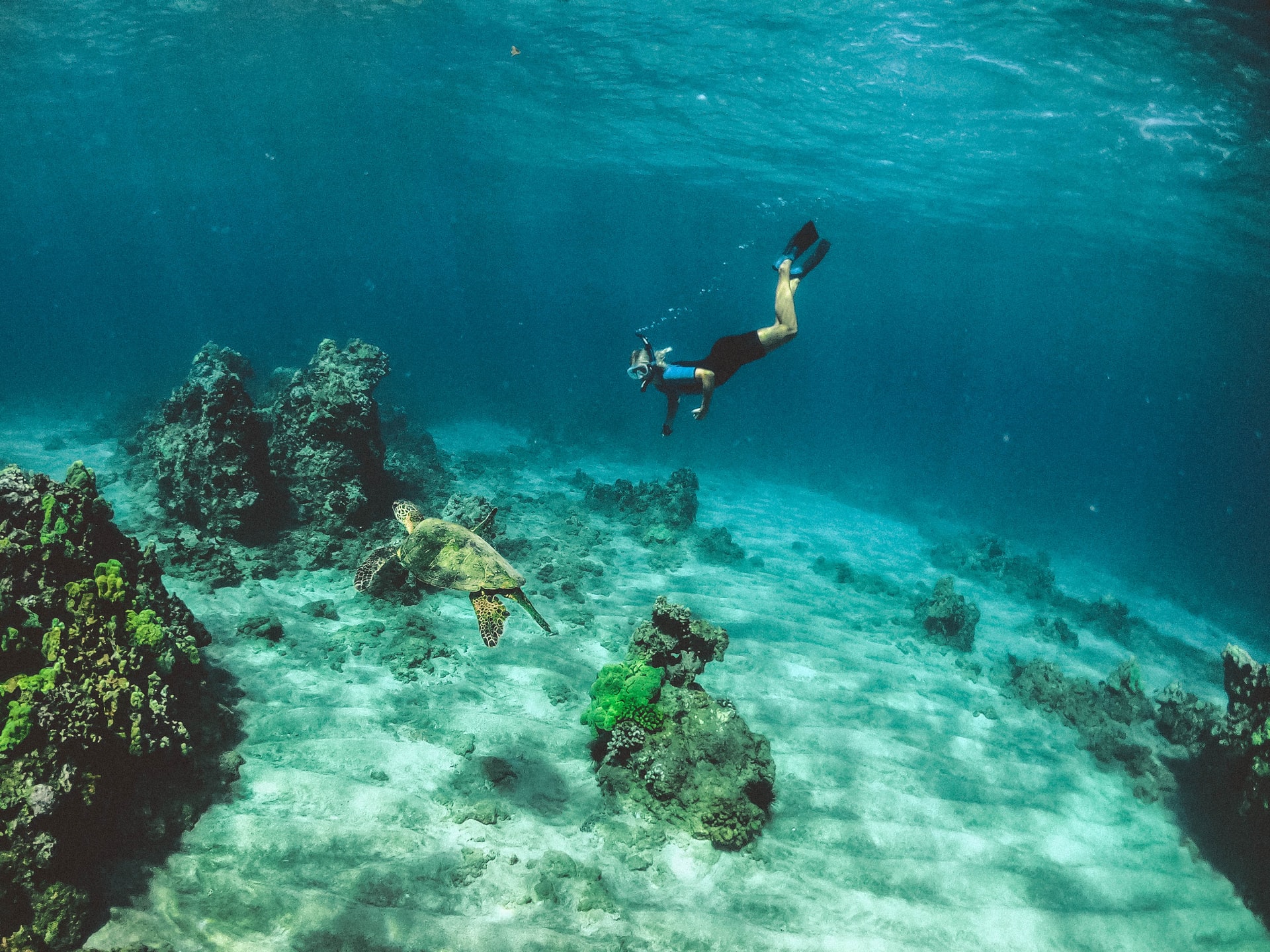
Can’t Hear After Snorkeling? 3 Possible Causes (& Solutions)
-
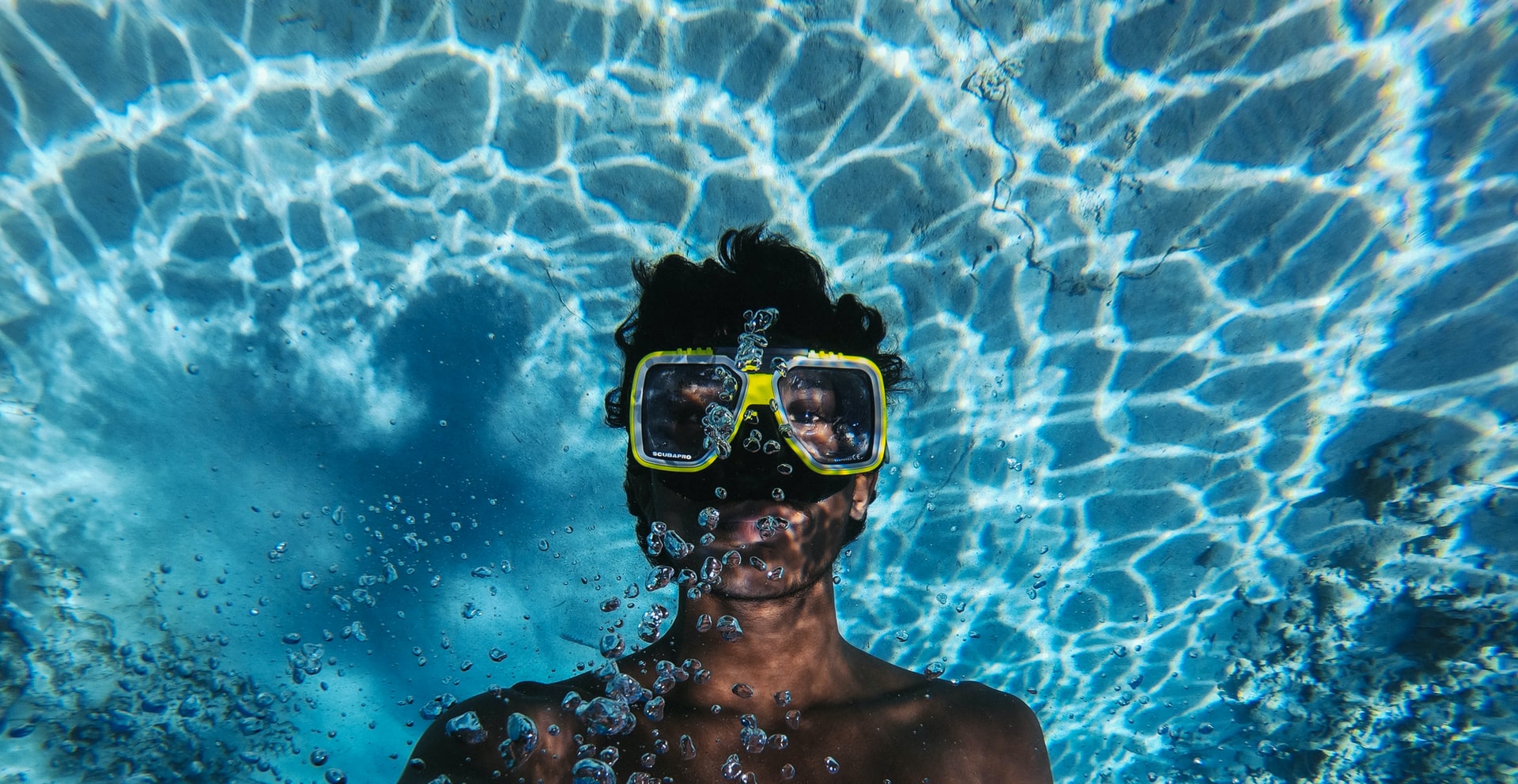
Can Snorkeling Cause a Sinus Infection? (+9 Tips to Avoid It)
-
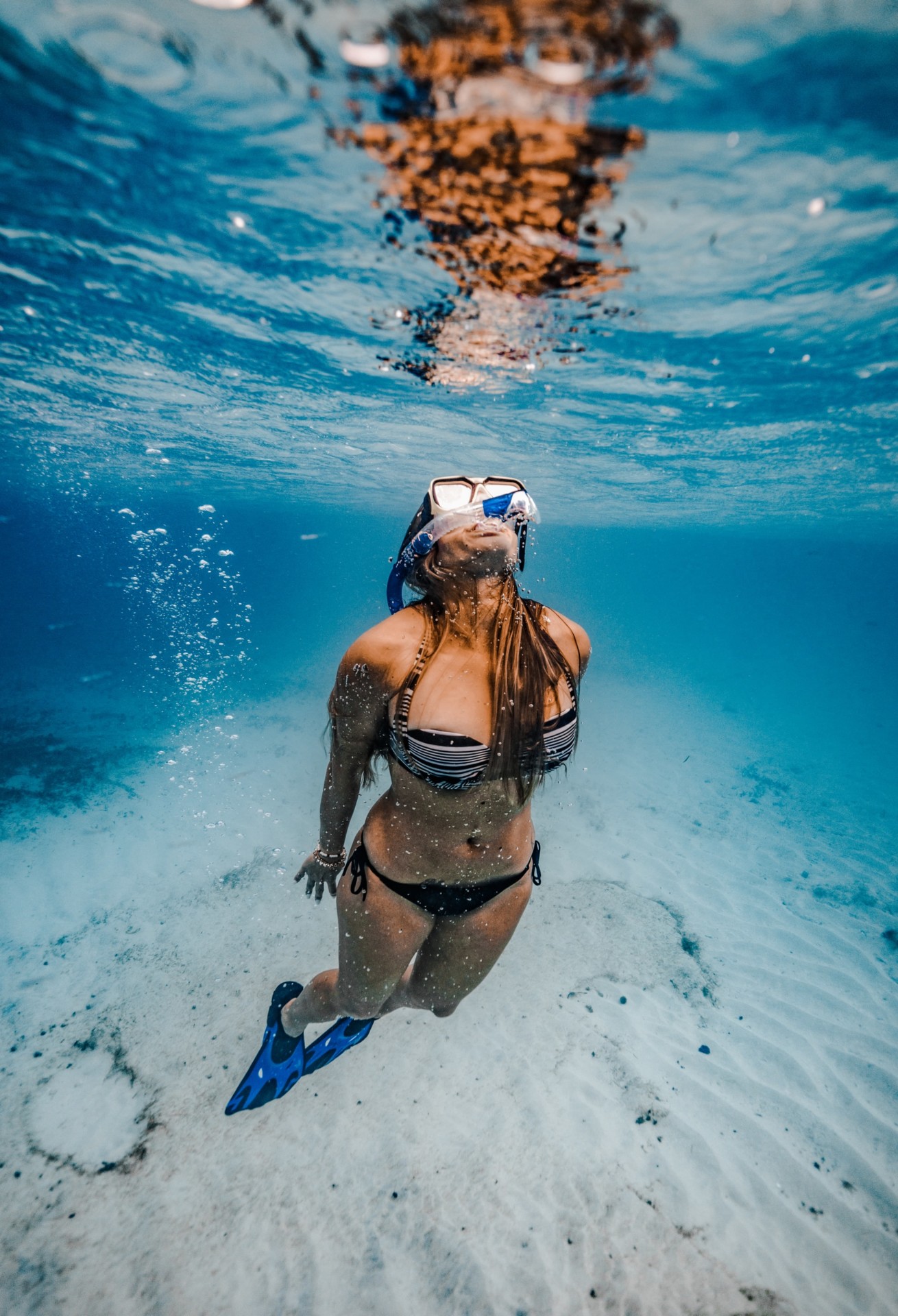
Can Snorkeling Cause a Sore Throat? 8 Common Causes (+Tips)
-
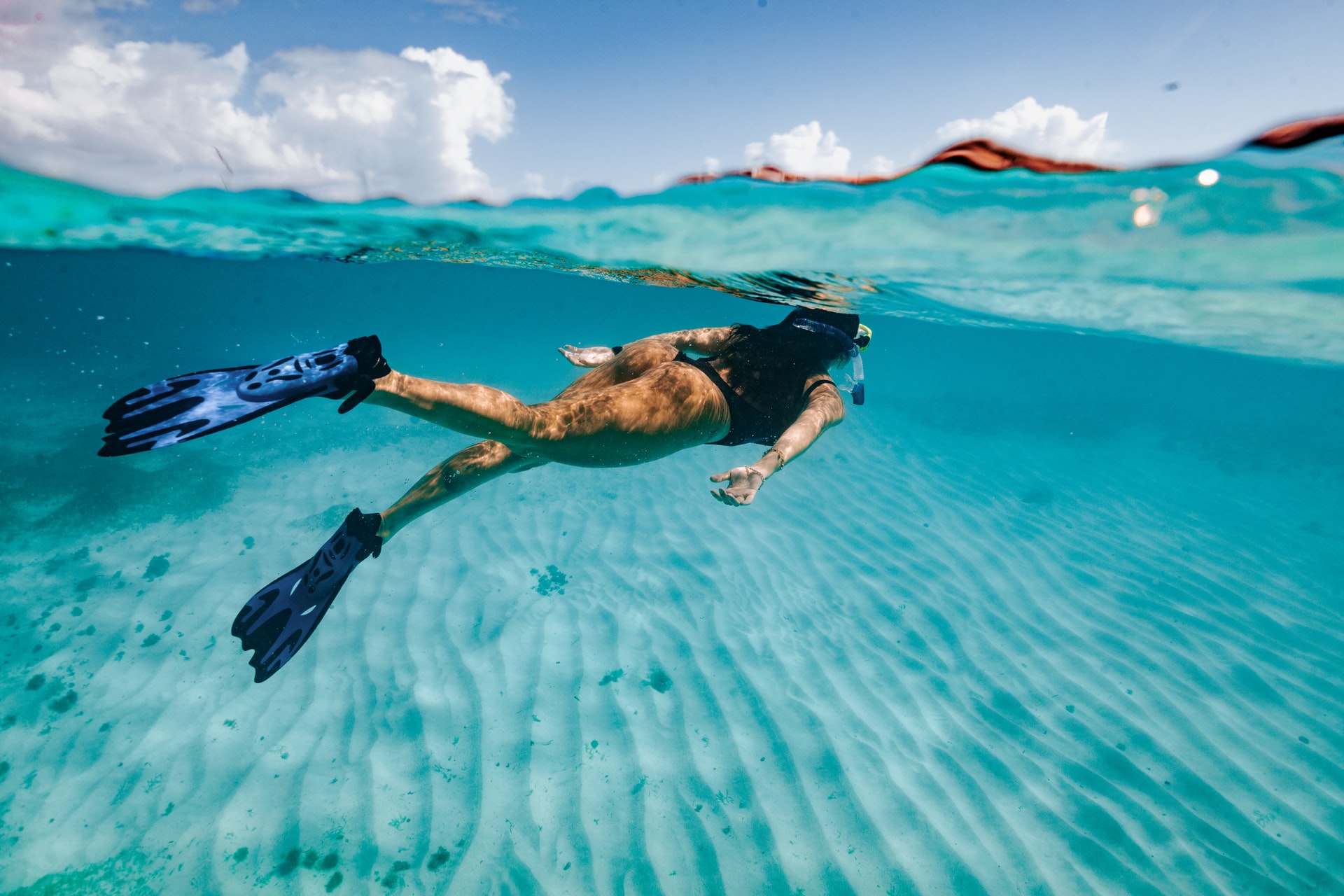
Can Snorkeling Cause Vertigo? (+8 Tips to Avoid It)
-
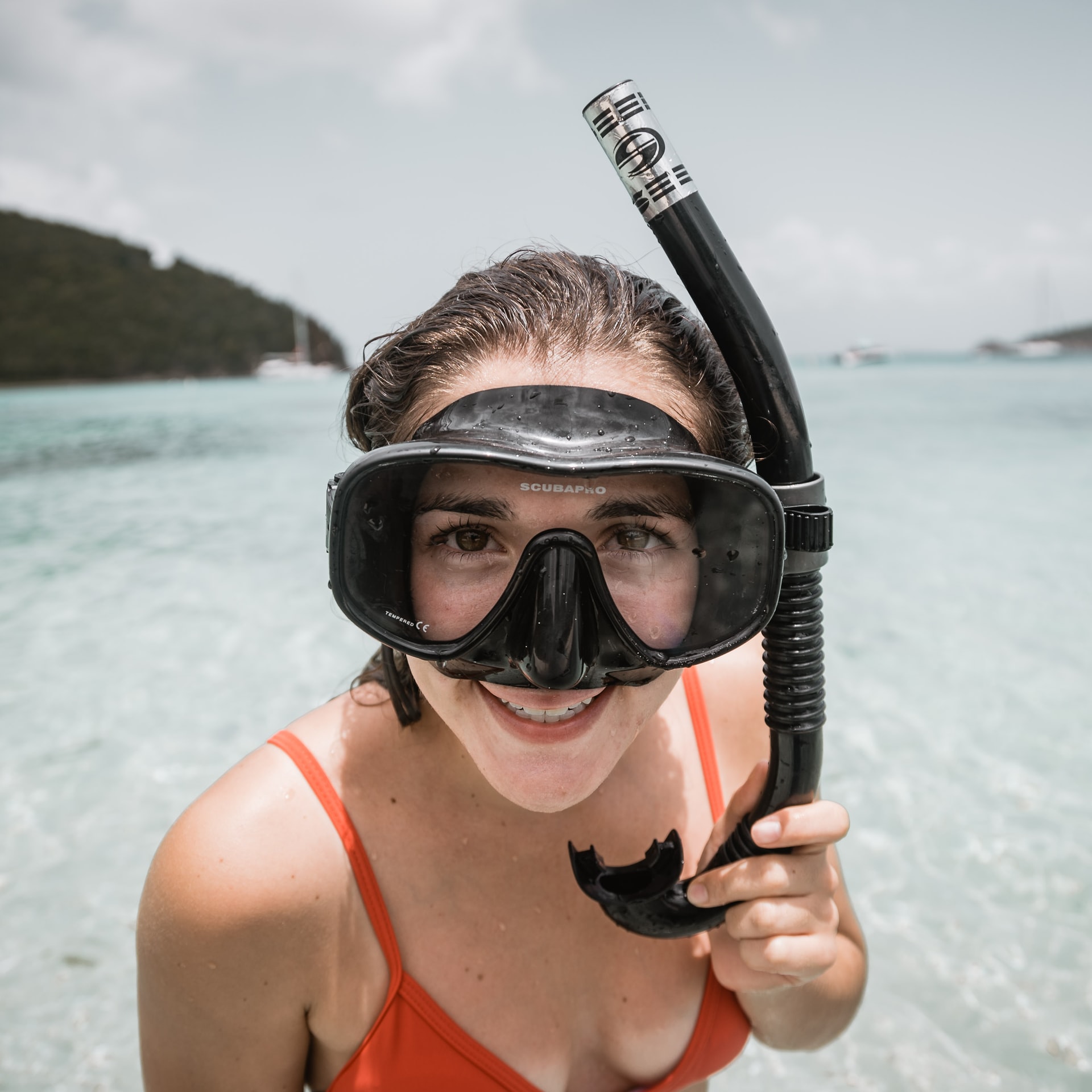
How Do Snorkel Masks Work? (+Regular Vs. Full-Face Masks)
-
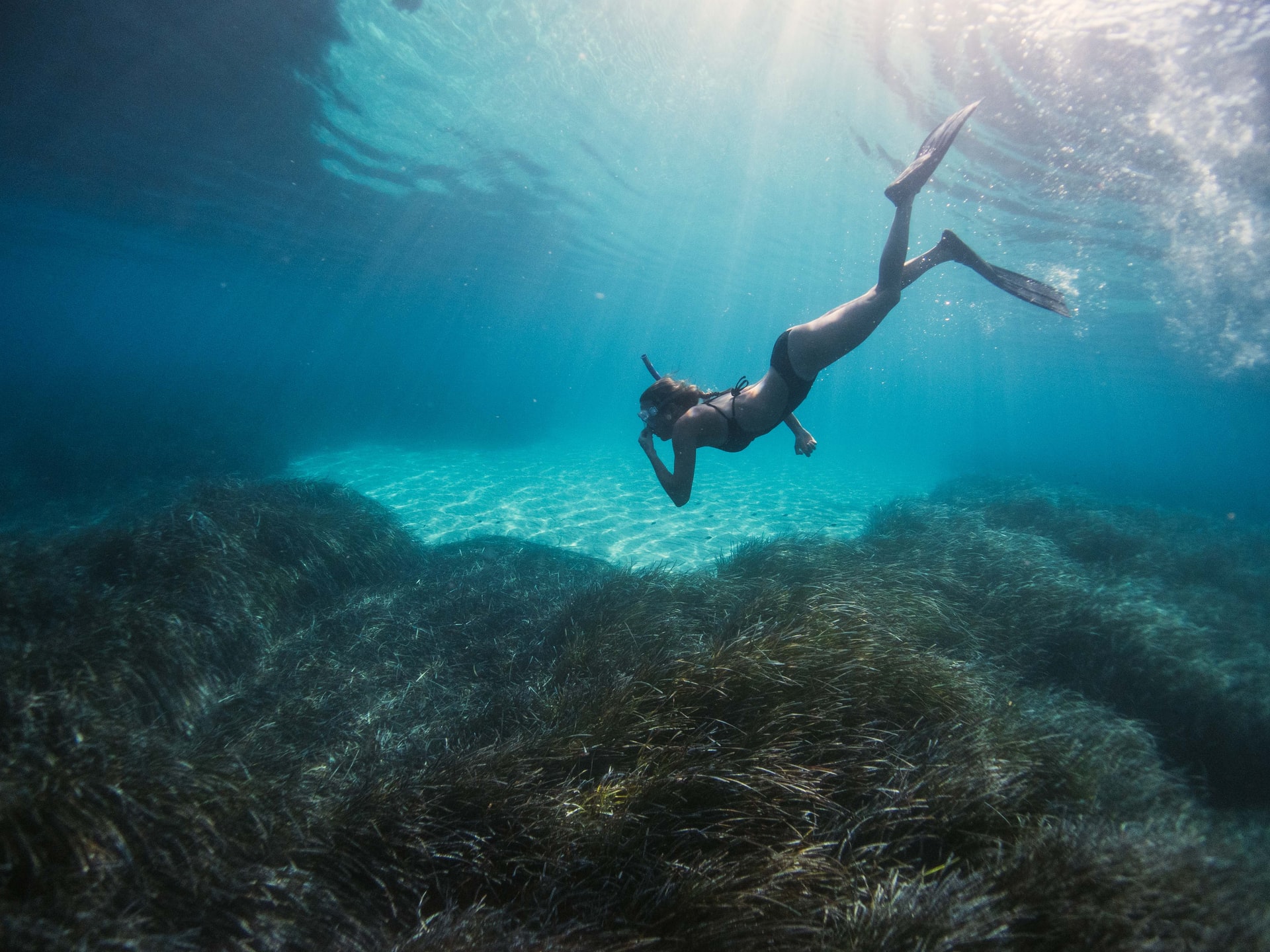
Why Does Snorkeling Make Me Nauseous? (11 Causes & Remedies)
-
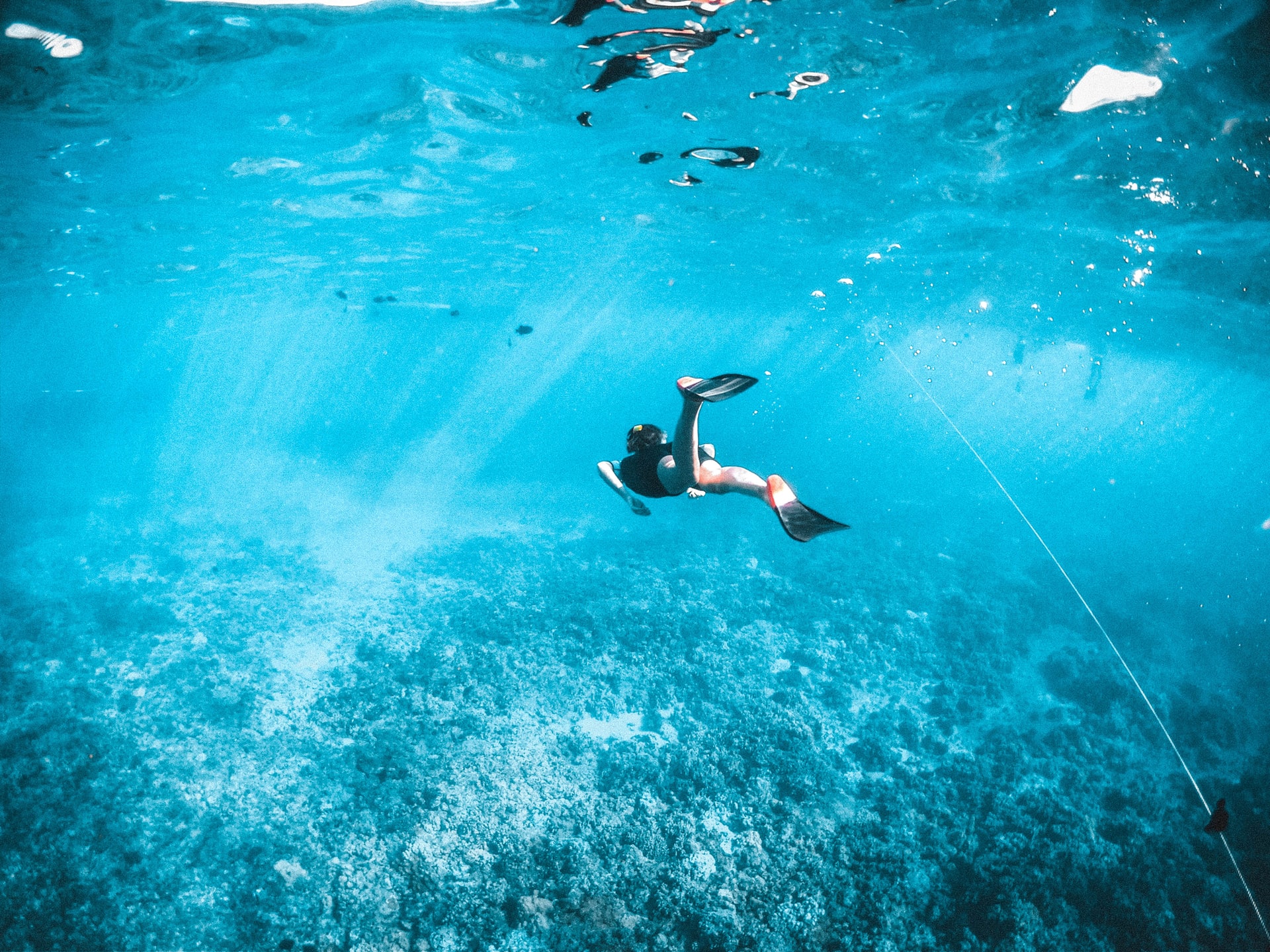
What Does Snorkeling Feel Like? FAQs Answered (for Beginners)
-
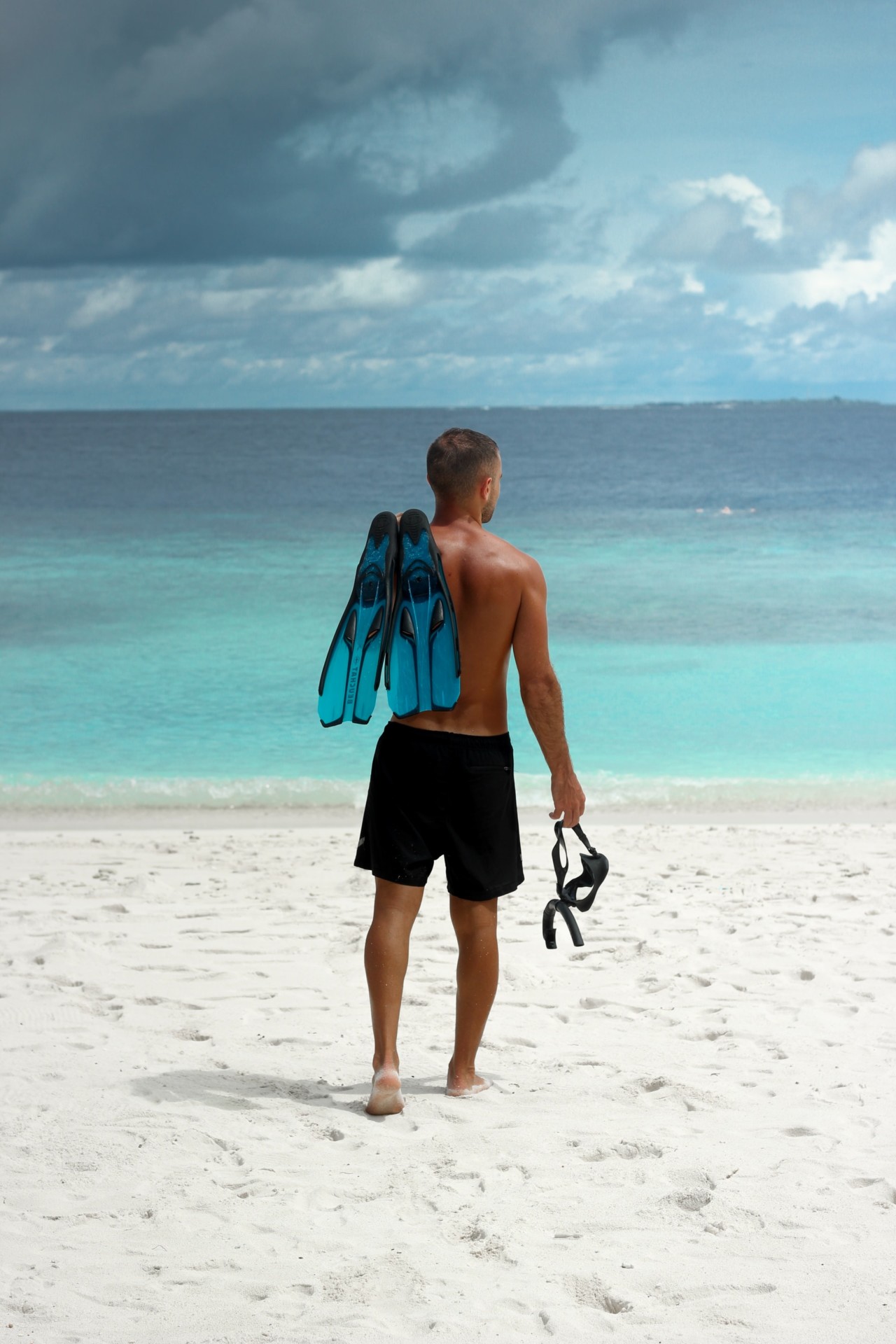
Does Rain Affect Snorkeling Visibility? 4 Ways It Does (+Helpful Tips)

